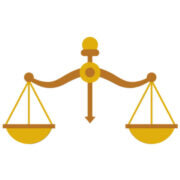Best Personal Injury Lawyers in Fort Lauderdale
Share your needs with us, get contacted by law firms.
Free. Takes 2 min.
List of the best lawyers in Fort Lauderdale, United States
About Personal Injury Law in Fort Lauderdale, United States
Personal injury law in Fort Lauderdale, United States revolves around seeking legal remedies for injuries caused by the negligence or intentional actions of others. It covers a wide range of accidents and incidents, such as motor vehicle accidents, slip and falls, medical malpractice, and product liability. If you have suffered harm due to someone else's actions, personal injury law is designed to help you recover compensation for your losses, including medical expenses, lost wages, and pain and suffering.
Why You May Need a Lawyer
While some personal injury claims may be straightforward, many complex legal issues can arise during the process. Here are a few common situations where seeking legal help is highly recommended:
- Severe Injuries: If you have sustained serious injuries, the impact on your life may be significant. An experienced personal injury lawyer can assess the full extent of your damages and help you pursue fair compensation.
- Disputed Liability: When fault is contested or multiple parties are involved, it can be challenging to determine who is responsible for your injuries. A lawyer can investigate the incident, gather evidence, and establish liability.
- Insurance Company Tactics: Insurance companies often try to minimize payouts or deny claims. Having a lawyer negotiate with the insurance company on your behalf can help ensure you receive a fair settlement.
- Complex Legal Procedures: Pursuing a personal injury claim involves legal paperwork, strict deadlines, and complex procedures. A lawyer can navigate these processes and ensure you meet all necessary requirements.
Local Laws Overview
Fort Lauderdale, like other cities in the United States, operates within a legal framework that governs personal injury cases. Some key aspects of local laws include:
- Statute of Limitations: In Fort Lauderdale, there is a specific time limit within which you must file a personal injury lawsuit. Generally, this is four years from the date of the injury, but exceptions may apply depending on the circumstances.
- Comparative Negligence: Florida follows a comparative negligence rule, which means your compensation may be reduced if you are found partially at fault for the incident. However, as long as you are less than 50% responsible, you can still recover damages.
- Damages Cap: Non-economic damages, such as pain and suffering, may be subject to a cap in certain personal injury cases. It's important to consult with an attorney to understand the specific limits that may apply to your situation.
Frequently Asked Questions
Q: How long do I have to file a personal injury claim in Fort Lauderdale?
A: In Fort Lauderdale, the statute of limitations for personal injury cases is generally four years from the date of the injury. However, it's essential to consult with an attorney as there can be exceptions to this time limit, depending on the circumstances.
Q: Can I still recover damages if I was partially at fault for the accident?
A: Yes, under Florida's comparative negligence rule, you can still recover damages even if you were partially at fault. However, your compensation may be reduced in proportion to your percentage of fault. As long as you are less than 50% responsible, you can pursue a claim.
Q: How much compensation can I expect to receive for my personal injury claim?
A: The amount of compensation you may receive depends on various factors, including the severity of your injuries, the impact on your life, and the evidence supporting your claim. It's best to consult with a personal injury lawyer who can assess your case and provide you with a realistic estimation based on similar past cases.
Q: Will my personal injury case go to court in Fort Lauderdale?
A: Many personal injury cases in Fort Lauderdale are resolved through negotiations and settlement agreements without going to court. However, if a fair settlement cannot be reached, your case may proceed to trial. Your lawyer will guide you through the entire process and represent your interests in court if necessary.
Q: How can a personal injury lawyer help me with my case?
A: A personal injury lawyer can provide invaluable assistance throughout your case. They can investigate the incident, gather evidence, assess your damages, negotiate with insurance companies, communicate with the other party's legal representation, and represent you in court, if required. Their expertise and experience can significantly increase your chances of receiving fair compensation.
Additional Resources
If you need further assistance or information regarding personal injury law in Fort Lauderdale, consider reaching out to the following resources:
- Fort Lauderdale Bar Association - https://www.browardbar.org/
- Florida Bar - https://www.floridabar.org/
- Florida Department of Financial Services - http://www.myfloridacfo.com/
Next Steps
If you require legal assistance for a personal injury case in Fort Lauderdale, here are the recommended next steps:
- Collect all relevant documents, such as medical records, accident reports, and insurance information.
- Research and shortlist experienced personal injury lawyers in Fort Lauderdale.
- Schedule consultations with potential lawyers to discuss your case and evaluate their expertise.
- Select a lawyer who is knowledgeable, experienced, and who you feel comfortable working with.
- Follow your lawyer's guidance, provide any requested information or documentation, and actively participate in your case.
- Keep all communication and documentation related to your case organized and readily accessible.
Lawzana helps you find the best lawyers and law firms in Fort Lauderdale through a curated and pre-screened list of qualified legal professionals. Our platform offers rankings and detailed profiles of attorneys and law firms, allowing you to compare based on practice areas, including Personal Injury, experience, and client feedback.
Each profile includes a description of the firm's areas of practice, client reviews, team members and partners, year of establishment, spoken languages, office locations, contact information, social media presence, and any published articles or resources. Most firms on our platform speak English and are experienced in both local and international legal matters.
Get a quote from top-rated law firms in Fort Lauderdale, United States — quickly, securely, and without unnecessary hassle.
Disclaimer:
The information provided on this page is for general informational purposes only and does not constitute legal advice. While we strive to ensure the accuracy and relevance of the content, legal information may change over time, and interpretations of the law can vary. You should always consult with a qualified legal professional for advice specific to your situation.
We disclaim all liability for actions taken or not taken based on the content of this page. If you believe any information is incorrect or outdated, please contact us, and we will review and update it where appropriate.











